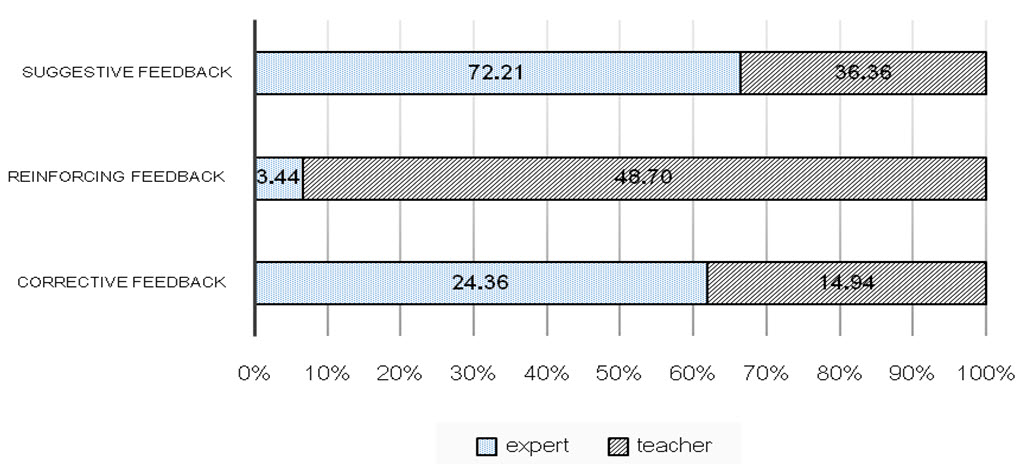โครงงานวิทยาศาสตร์ของนักเรียนห้องเรียนพิเศษวิทยาศาสตร์และการประเมินศักยภาพครูวิทยาศาสตร์ในบทบาทของผู้ประเมินโครงงานวิทยาศาสตร์
Main Article Content
Abstract
Sura Wuttiprom, Karntarat Wuttisela and Rachapak Chitaree
รับบทความ: 9 มีนาคม 2557; ยอมรับตีพิมพ์: 26 เมษายน 2557
บทคัดย่อ
งานวิจัยนี้มีวัตถุประสงค์เพื่อจำแนกโครงงานวิทยาศาสตร์ตามเกณฑ์ของการประกวดโครงงานของนักวิทยาศาสตร์รุ่น-เยาว์ประจำปี 2555 ประเมินคุณภาพของโครงงานวิทยาศาสตร์ ประเมินศักยภาพของครูที่ปรึกษาโครงงานวิทยาศาสตร์ในบทบาทของผู้ประเมินโครงงานวิทยาศาสตร์ และเปรียบเทียบการให้ข้อมูลย้อนกลับของครูที่ปรึกษาโครงงานวิทยาศาสตร์กับผู้เชี่ยวชาญ กลุ่มตัวอย่าง ได้แก่ นักเรียนระดับมัธยมศึกษาตอนปลายโครงการห้องเรียนพิเศษด้านวิทยาศาสตร์ จำนวน 131 คน และครูที่-ปรึกษาโครงงานวิทยาศาสตร์ จำนวน 15 คน เครื่องมือที่ใช้ในการวิจัย ได้แก่ แบบประเมินโครงงานวิทยาศาสตร์ที่ผู้วิจัยสร้างขึ้น วิเคราะห์ข้อมูลโดยค่าเฉลี่ย ส่วนเบี่ยงเบนมาตรฐาน ร้อยละ ความสัมพันธ์แบบสเปียร์แมน จากการศึกษาโครงงานวิทยาศาสตร์ 51 เรื่องที่เข้าร่วมในงานวิจัยนี้ พบว่า โครงงานวิทยาศาสตร์สาขาวิทยาศาสตร์พืชมีจำนวนมากที่สุดคิดเป็นร้อยละ 45 โครงงาน ผลการประเมินโครงงานวิทยาศาสตร์โดยครูที่ปรึกษาโครงงานวิทยาศาสตร์และผู้เชี่ยวชาญอยู่ในระดับปานกลาง ความสัมพันธ์ระหว่างการให้คะแนนโครงงานวิทยาศาสตร์ของครูที่ปรึกษาโครงงานวิทยาศาสตร์กับผู้เชี่ยวชาญอยู่ในระดับปานกลาง และการให้ข้อมูลย้อนกลับของครูส่วนใหญ่เป็นแบบเสริมแรง ส่วนผู้เชี่ยวชาญเป็นแบบให้ข้อเสนอแนะ
คำสำคัญ: โครงงานวิทยาศาสตร์ การให้ข้อมูลย้อนกลับ การพัฒนาครู ห้องเรียนพิเศษวิทยาศาสตร์
Abstract
The purposes of this research were to categorize the types of science fair projects based on the 2012 criteria of Young Scientist Competitions, assess the quality of science fair projects, evaluate the science teachers’ performance as assessors of science fair projects, and compare the feedback given by science teachers and experts. The study involved 131 high school students in the Enrich Science Classroom and 15 science teachers, and the research tool was the science fair project evaluation Rubric. The data were analyzed by the use of average, standard deviation, percentage, and Spearman rank correlation coefficient. Fifty-one science fair projects were investigated, and it was found that 45 percents of the projects related to plant science topics, the assessment results by science teachers and experts was moderate. There was a moderate level of correlation between the scores provided by science teachers and experts. The majority of the feedback obtained from science teachers and experts was of a reinforcing nature and made suggestions.
Keywords: Science fair project, Feedback, Professional development, Enrich science classroom
Downloads
Article Details

This work is licensed under a Creative Commons Attribution-NonCommercial 4.0 International License.
References
บุญชม ศรีสะอาด. (2535). การวิจัยเบื้องต้น. กรุงเทพฯ: สุวีริยาสาส์น. กรุงเทพฯ.
ยงยุทธ ยุทธวงศ์. (2554). วิทยาศาสตร์เพื่ออะไร. กรุงเทพฯ: อักษรสัมพันธ์.
วิจารณ์ พานิช. (2553). ครูเพื่อศิษย์สร้างห้องเรียนกลับทาง. กรุงเทพฯ: เอส.อาร์.พริ้นติ้ง แมสโปรดักส์ จำกัด.
สุธีระ ประเสริฐสรรพ์. (2555). โครงงานฐานวิจัย: กระบวนการเรียนรู้ใหม่ของการศึกษาไทย. กรุงเทพฯ: สำนักงานกองทุนสนับสนุนการวิจัย.
สุธีระ ประเสริฐสรรพ์. (2556). หลักการเขียนบทความวิชาการ: หลักคิดเพื่อเมล็ดพันธุ์โครงงานฐานวิจัย. พิมพ์ครั้งที่ 2. กรุงเทพฯ: นำศิลป์โฆษณา.
สัจจา จันทรวิเชียร. (2556). เรียนรู้รอบโลก: ความรู้รอบตัว. E-book online.
Chi, M. T. H. (1996). Constructing self-explanations and scaffolded explanations in tutoring. Ap-plied Cognitive Psychology 10: 33-49.
Hinkle, D. E., William, W., and Stephen, G. J. (1998). Applied Statistics for the Behavior Sciences. 4th ed. New York: Houghton Mifflin.
Osborne, J., Simon, S. and Collins, S. (2003). Attitudes towards science: A review of the literature and its implications. International Journal of Science Education 25(9): 1049-1079.
Rovinelli, R. J., and Hambleton, R.K. (1997). On the use of content specialists in the assessment of criterion referenced test item validity. Dutch Journal for Educational Research 2: 49-60.
Tseng, S. C., and Tsai, C. C. (2007). On-line peer assessment and the role of the peer feed-back: A study of high school computer course. Computers & Education 49(4): 1161-1174.
